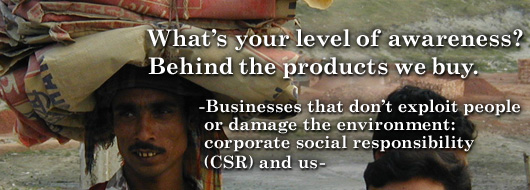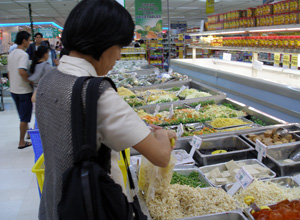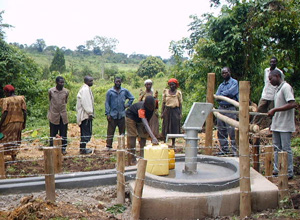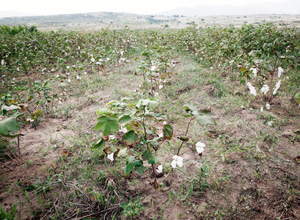No.23 1 Apr. 2009
What’s your level of awareness? Behind the products we buy.

INDEX
- P1What’s your level of awareness? Behind the products we buy.
- P2What familiar companies are doing Sony
- P3What familiar companies are doing Ministop
- P4Social responsibility as consumers.
Ultimately, we are the ones who decide which products to buy.
-What can we do right now?-
Social responsibility as consumers.
Among Japanese citizens, concern about environmental issues is growing, as can be seen in the level or participation in “Team Minus 6%” and the Eco-bag movement. With the increase in the number of green products to choose from, consumers are now able to purchase and use products which have been made taking the environment in to consideration, which can be called one of the achievements of the increased awareness of social responsibility among corporations and consumers.
On the other hand, as yet, few people make a point to consider how the products they come in contact with are made. What’s the point of an environmentally-friendly product if in its manufacturing process the environment is polluted, and the person who made the product falls into poverty?
We, the consumers, must also concern ourselves with how goods are produced. More than anything, the Japanese consumer’s demands have the greatest effect on Japanese corporations. While it is difficult for those living in developing countries suffering under poor working conditions to raise their voices, it is possible for us who live in Japan. Social responsibility is not just for corporations, but for each and every member of society.

The actions of corporations change with the awareness of society.
What CSR activities companies choose to undertake are decided within the context of the surrounding society, the market, and its consumers. Japanese consumer opinion can act to promote the spread of corporate attention to the production process and CSR activities.
In order to help prevent and solve human rights and environmental problems, we can show our approval for corporations with transparent production systems by adding this condition to how we evaluate the products we purchase. Specifically, we can call companies’ customer service lines and ask about how products are made. Also, it is important that we educate the people around us about the problems places of production face, and about the efforts of NGOs and corporations in response.
If proactive corporate efforts, government initiative, the work of NGOs and responsible conduct by consumers are all present, the problems that arise during the process of goods production can be solved, and a sustainable society can be achieved. And the first step towards that goal is to take a closer look at the “background story” of familiar, everyday products.
New jobs and clean water in Uganda
Also, in view of the great quantities of water needed to make denim products, Lee Japan is dedicating 2% of sales revenues to HFW to finance construction of wells, contributing to solving problems of water and sanitation afflicting Ugandans. When this project was launched, HFW exchanged with Lee Japan a memorandum stipulating that the environment and human rights be sufficiently considered during the production process. In order to evaluate the implementation of the project, HFW is cooperating as an external auditor to the project.

A well constructed with project donations

A field of organic cotton
» BORN in UGANDA ORGANIC COTTON

